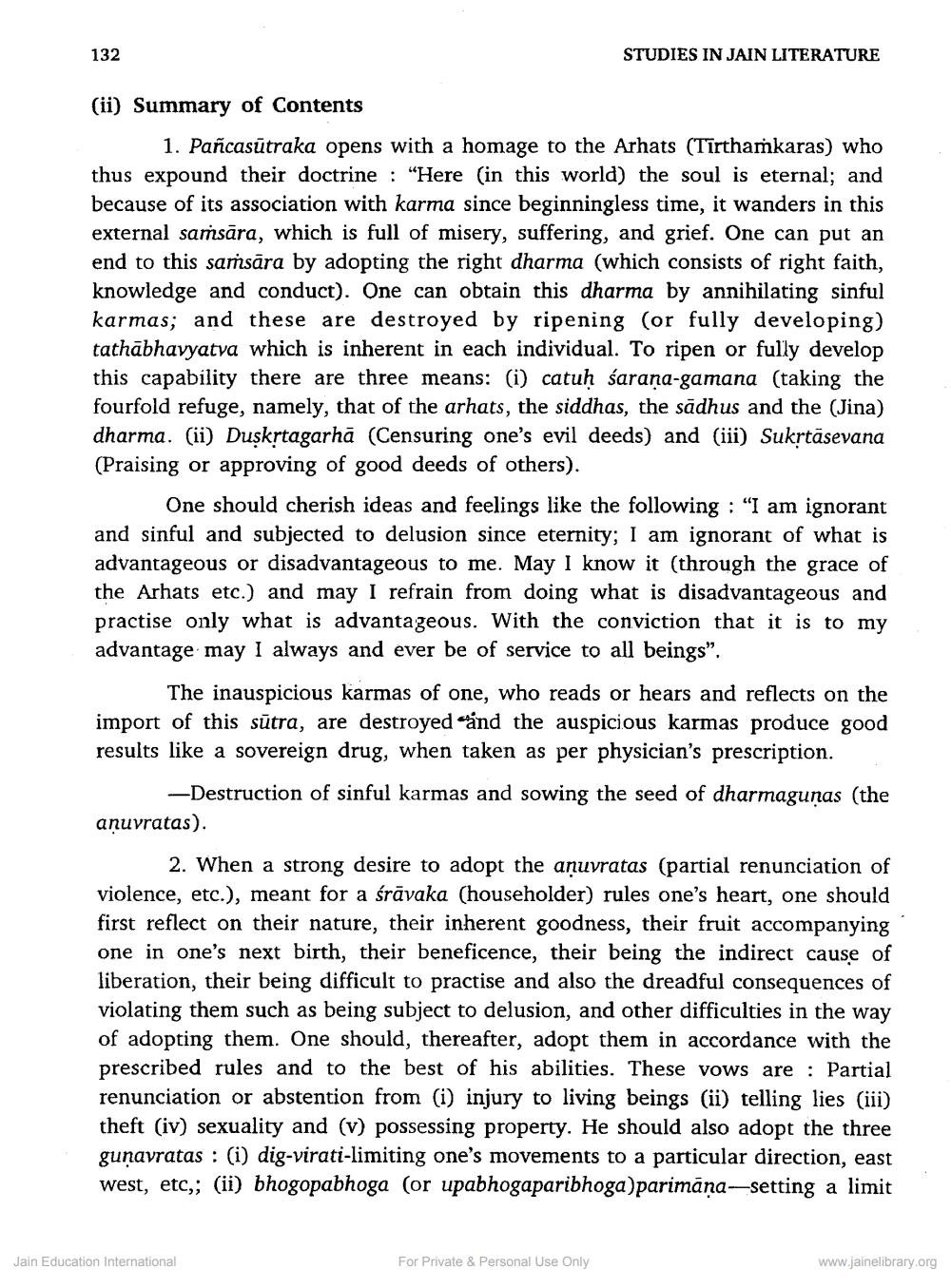________________ 132 STUDIES IN JAIN LITERATURE (ii) Summary of Contents 1. Pancasutraka opens with a homage to the Arhats (Tirthamkaras) who thus expound their doctrine : "Here (in this world) the soul is eternal; and because of its association with karma since beginningless time, it wanders in this external samsara, which is full of misery, suffering, and grief. One can put an end to this samsara by adopting the right dharma (which consists of right faith, knowledge and conduct). One can obtain this dharma by annihilating sinful karmas; and these are destroyed by ripening (or fully developing) tathabhavyatva which is inherent in each individual. To ripen or fully develop this capability there are three means: (i) catuh sarana-gamana (taking the fourfold refuge, namely, that of the arhats, the siddhas, the sadhus and the (Jina) dharma. (ii) Duskrtagarha (Censuring one's evil deeds) and (iii) Sukrtasevana (Praising or approving of good deeds of others). One should cherish ideas and feelings like the following : "I am ignorant and sinful and subjected to delusion since eternity; I am ignorant of what is advantageous or disadvantageous to me. May I know it (through the grace of the Arhats etc.) and may I refrain from doing what is disadvantageous and practise only what is advantageous. With the conviction that it is to my advantage may I always and ever be of service to all beings". The inauspicious karmas of one, who reads or hears and reflects on the import of this sutra, are destroyed sand the auspicious karmas produce good results like a sovereign drug, when taken as per physician's prescription. -Destruction of sinful karmas and sowing the seed of dharmagunas (the anuvratas). 2. When a strong desire to adopt the anuvratas (partial renunciation of violence, etc.), meant for a sravaka (householder) rules one's heart, one should first reflect on their nature, their inherent goodness, their fruit accompanying one in one's next birth, their beneficence, their being the indirect cause of liberation, their being difficult to practise and also the dreadful consequences of violating them such as being subject to delusion, and other difficulties in the way of adopting them. One should, thereafter, adopt them in accordance with the prescribed rules and to the best of his abilities. These vows are : Partial renunciation or abstention from (i) injury to living beings (ii) telling lies (iii) theft (iv) sexuality and (v) possessing property. He should also adopt the three gunavratas : (i) dig-virati-limiting one's movements to a particular direction, east west, etc,; (ii) bhogopabhoga (or upabhogaparibhoga)parimana--setting a limit Jain Education International For Private & Personal Use Only www.jainelibrary.org




